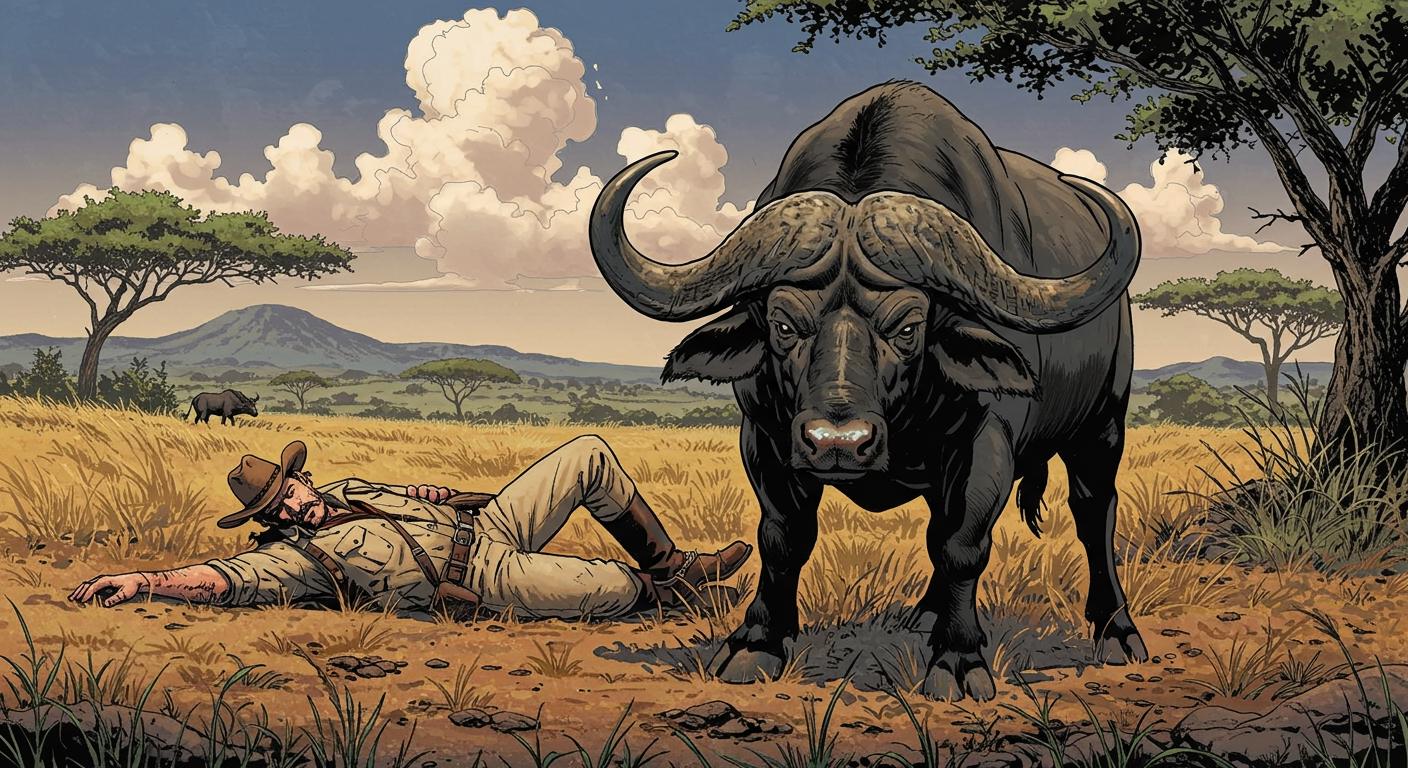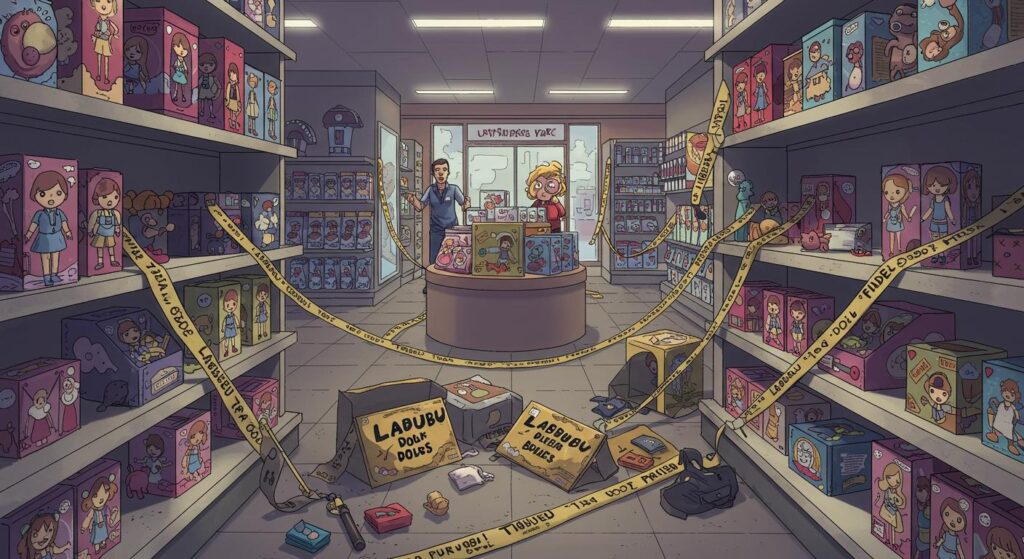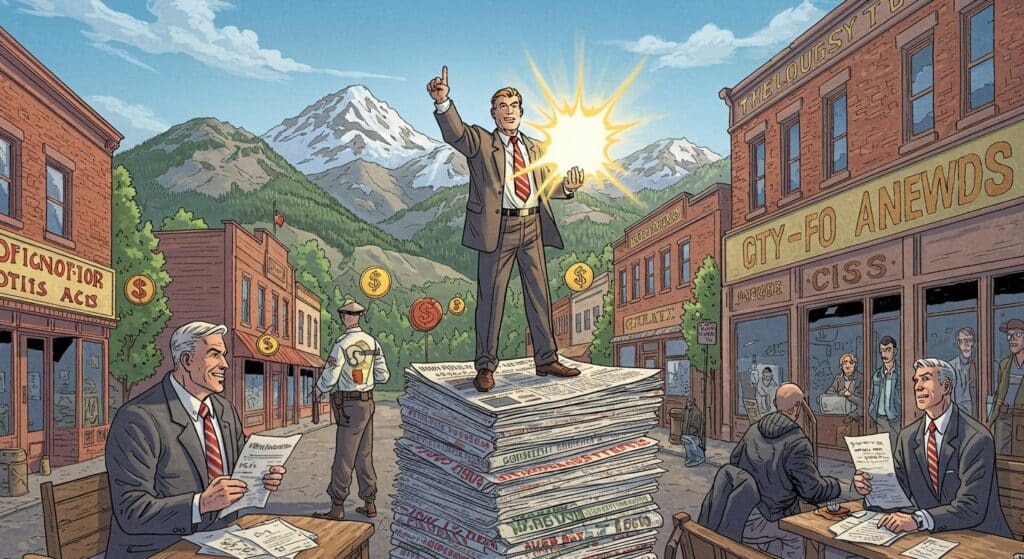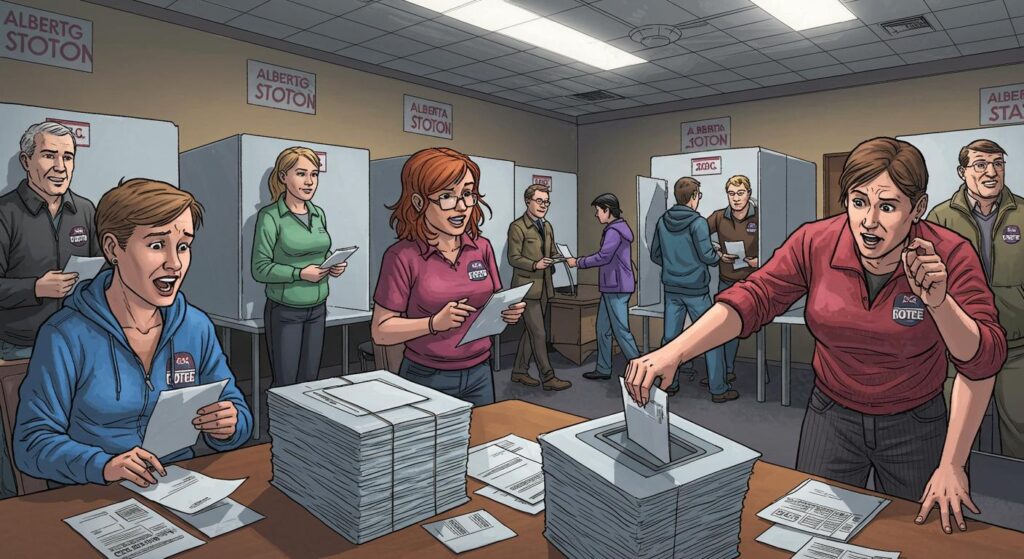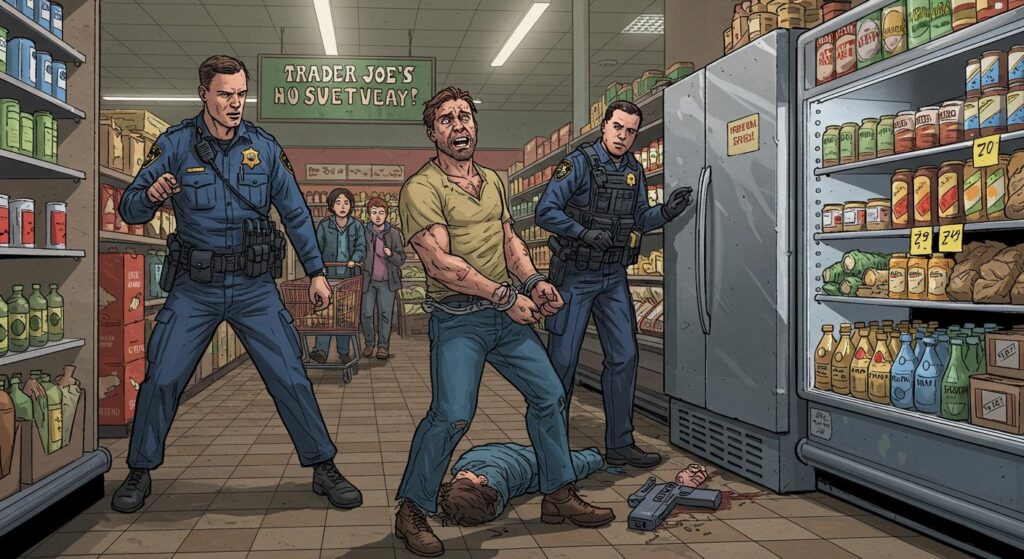The line between hunter and hunted blurs sometimes in ways that sound ripped from a Roald Dahl story—if Dahl swapped witches and chocolate for the dust of the Limpopo and a two-thousand-pound bovine tank called “Black Death.” Recent headlines prove, once again, that the natural world rarely checks with us before flipping the script.
An Unpredictable Encounter in Limpopo
As NPR reports, Texas real estate mogul and seasoned trophy hunter Asher Watkins died while stalking a Cape buffalo during a guided expedition in South Africa. The safari organizer, Coenraad Vermaak Safaris, stated that the encounter with the animal was “sudden and unprovoked”—which is safari code for: the animal wasn’t injured, enraged by a bullet, or being actively chased at that specific moment.
Reporting by Hindustan Times highlights that Watkins’ end came swiftly. The Cape buffalo, a 1.3-ton bull locally nicknamed “Black Death,” turned on Watkins while he was being tracked alongside both a professional hunter and a tracker. The animal killed the millionaire almost instantly. It’s a stark reminder that sometimes the so-called prey isn’t built for flight so much as fight.
That reputation is well-earned—not just in legend. According to NPR’s recounting of safari company statements, Cape buffalo are infamous for causing fatalities and serious injuries every year to would-be hunters. The company’s own writeup goes so far as to call them the most dangerous animal to pursue in Africa, if not the world. Each year, plenty of hunters roll the dice and lose, according to the safari company’s own records.
Internet Reaction: Rituals of Ridicule and Reflection
While the facts of the case show one man dead and a family mourning, the digital sphere responded with little reverence. As BroBible notes, social media erupted with riffs about “fair play,” “natural selection,” and memorable puns. On Reddit, users found no shortage of creative jabs; one comment described the event as a “skill issue,” while another quipped that for the buffalo, the attack was hardly “unprovoked.” It seems nobody wanted to pass up the symbolism.
Organizers and family released carefully worded statements, expressing their shock and sadness and requesting privacy. Watkins’ ex-wife told Hindustan Times that their daughter Savannah was in a state of shock—underscoring the emotional complexity of a story that’s gone viral for all the wrong, or at least unpredictable, reasons. The same report detailed that Watkins was an American trophy hunter who frequently posted photos of himself with slain animals as varied as deer, ducks, and mountain lions. Evidently, public documentation of a hunting lifestyle can fuel some very polarized responses when fate reverses the roles.
Activist organizations weighed in as well. NPR documents that PETA responded on Instagram, saying, “The terrified buffalo was cornered and retaliated. Animals aren’t trophies or wall decorations. Trophy hunting must end!” Comments supporting the buffalo’s actions drew thousands of likes. There’s no need to scan the comment sections for long before finding someone toasting, with grim satisfaction, to the buffalo.
A Debate Behind the Headlines
The legacy of big game safaris is never simple. BroBible, drawing on data from the Dallas Safari Club, outlines the economic footprint of trophy hunting—estimating about $130 million flows into the South African economy each year, with the average hunter spending roughly $10,000 on a single trip, not including flights or game itself. The article notes that the rationale often supplied is one of regulated population management: that many of the guided hunts specifically target aging or sick animals, whose removal is ostensibly part of a conservation plan.
Whether this convenient moral geometry holds up is open for debate. BroBible acknowledges that, in practice, it’s not always the weakest animal targeted, and Cape buffalo are not regarded as a threatened species. The International Union for Conservation of Nature lists them as “Near Threatened,” with populations monitored in an effort to prevent overhunting. NPR also observed that the online conversation rarely touches on this nuance—most public sentiment skips past the economics of conservation, straight to the spectacle and the symbolism of the event.
Of course, if every hunter went home unscathed, these debates might have a different tenor. Sometimes, as source reporting conveys, it really is just a healthy, powerful animal refusing to play the role written for it. Nuance, it seems, is less clickable.
The Wild, the Internet, and the Scoreboard
There’s an irony to this kind of tale: the real estate magnate whose fortune was built on domesticated wilderness, meeting a sudden, fatal end in a domain that resists being tamed. Watkins’ death, as publicly processed, reveals less about hunting than it does about the vastly different stories we tell ourselves about nature, morality, and consequence.
Amid the schadenfreude, grief, and outright mockery, something more complicated lingers. Watkins’ loss is plainly a tragedy for his friends and family, but, as coverage from NPR and Hindustan Times makes clear, it’s become a flashpoint for persistent cultural fault lines: the legitimacy (or lack thereof) of trophy hunting, the tension between heritage and modern sensibilities, and the mythic struggle for dominion over the natural world.
Will headlines like these—hunter killed by the hunted—shift our thinking, or simply reinforce entrenched views? Are we drawn more to the spectacle or to the uneasy idea that, when venturing into the wild, the rules don’t always bend in our favor?
Ultimately, the only thing more ungovernable than a Cape buffalo might be the collective response of an internet quick to spot poetic justice. In this latest skirmish between humankind and the truly wild, for once, the scoreboard reads: Buffalo, 1.

